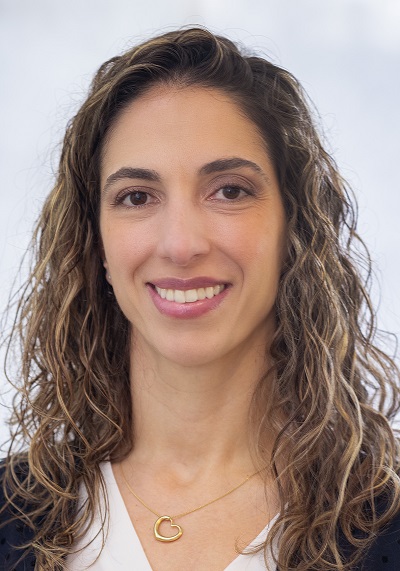
I was born in Cuba and my family immigrated to New Jersey in 1989. We lived in a predominantly Hispanic, low-income neighborhood in Hudson County. Thanks to a passionate biology teacher in high school who shared a similar experience, I fell in love with science and ultimately decided to study medicine. I explored several different specialties before I discovered the thrill of thoracic surgery, and the winding road that led me here has taught me a lot about challenging the status quo.
#1: Excellence is possible everywhere. In my new role as Director of Thoracic Surgery, Northern Region, RWJBarnabas Health, I am collaborating with colleagues on building and growing a world-class thoracic surgery program across RWJBarnabas Health and Rutgers Cancer Institute of New Jersey, the state’s only National Cancer Institute-designated Comprehensive Cancer Center. Historically, New Jersey has had a scarcity of ultra-specialist surgeons, but our division has changed that. A priority focus area is thoracic oncology – which covers a range of cancers in the chest area, with lung cancer being the most common. I know first-hand how important it is to have access to modern cancer care in your own backyard. When my father was diagnosed with renal cell cancer, it required frequent trips to Manhattan, which was hard on him and our family. My vision as the newly appointed Director, as well as Chief of Thoracic Surgery and Director of Robotic Thoracic Surgery at Cooperman Barnabas Medical Center, an RWJBarnabas Health facility, is to provide patients with a leading-edge thoracic oncology program, working closely with our team of nationally-recognized thoracic surgeons and my colleagues throughout the health system, obviating a need to travel any further than New Jersey to get the highest quality of care.
#2: There is always a step forward. My specialty is minimally-invasive robotic thoracic surgery, an advancement which has exploded in recent decades. The progress of technology in this field is astonishing, and RWJBarnabas Health’s Thoracic Surgery program is nationally-recognized for offering the most advanced techniques that offer safe, effective, and significantly less painful alternatives to more invasive surgical procedures. With the aid of robotic arms and instruments, our surgeons can make more precise, controlled movements to remove diseased tissue without having to make large incisions. Soon, major invasive surgeries for lung cancer will be a thing of the past.
#3: Math doesn’t care about your gender. I’m proud to be a female thoracic surgeon, which is rare in this region and nationwide. Although our numbers are growing, women make up just under 4% of all board-certified thoracic surgeons in the United States.1 Diversity breeds innovation and having more capable young women entering competitive fields is necessary. As a child, working with my father on home projects formed the basis of my love of machines, technology, math, and solving complex problems. I encourage girls to get involved in STEM (Science, Technology, Engineering, and Math) early on and to not be afraid of science-heavy fields. At the end of the day, math doesn't care how you identify yourself.
#4: Science fiction can become science fact. In addition to advancements in robotic surgery, I’m excited about new ablative technologies that are becoming mainstream for early-stage lung cancer. These minimally-invasive therapies use extremely high or low temperatures to destroy abnormal tissue or tumors instead of removing an entire organ or part of it. The potential for employing Artificial Intelligence (AI) and machine learning algorithms in thoracic surgery is also wide-ranging.
#5: Focus on the solution, not the challenge: My personal goal is to ensure all patients have access to quality care, and this is reflected in the diversity of our staff and our focus on preventative services. Achieving follow-up for a positive screening test is essential to impact early intervention for lung cancer, so I conducted research looking at disparities in follow-up care after lung cancer screening. My colleagues and I found that minority patients were less likely to return for a follow-up visit after a positive lung cancer screening. This is not an easy challenge to fix, but it is where we can make a big difference, so I am determined to stay focused on the solution.
The journey that brought me to medicine, to thoracic surgery, and to RWJBarnabas Health was paved with valuable lessons about believing in possibility. But perhaps the most sage advice came from my daughter, who simply said “I can only do my best.” This is my goal each day, and the heart of my patient purpose.
1Kane L, Litle VR, Blackmon SH, Yanagawa J. The national and global impact of “Women in Thoracic Surgery”. J Thorac Dis. 2021 Jan;13(1):432-438. doi: 10.21037/jtd-20-2225. PMID: 33569228; PMCID: PMC7867828.
2Sesti J, Sikora TJ, Turner DS, Turner AL, Langan RC, Nguyen AB, Paul S. Disparities in Follow-Up After Low-Dose Lung Cancer Screening. Semin Thorac Cardiovasc Surg. 2020 Winter;32(4):1058-1063. doi: 10.1053/j.semtcvs.2019.10.006. Epub 2019 Oct 16. PMID: 31626913.